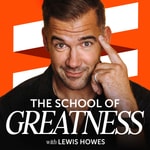Geeky Stoics – Details, episodes & analysis
Podcast details
Technical and general information from the podcast's RSS feed.

Geeky Stoics
Stephen Kent
Frequency: 1 episode/15d. Total Eps: 208

www.geekystoics.com
Recent rankings
Latest chart positions across Apple Podcasts and Spotify rankings.
Apple Podcasts
🇨🇦 Canada - philosophy
27/02/2025#84🇬🇧 Great Britain - philosophy
23/10/2024#88
Spotify
No recent rankings available
Shared links between episodes and podcasts
Links found in episode descriptions and other podcasts that share them.
See all- https://twitter.com/FGGoingRogue
99 shares
- https://twitter.com/fangirlcantina
98 shares
- https://twitter.com/maggieofthetown
65 shares
RSS feed quality and score
Technical evaluation of the podcast's RSS feed quality and structure.
See allScore global : 59%
Publication history
Monthly episode publishing history over the past years.
Geeky Stoics Takes a Walk in the Woods
lundi 14 octobre 2024 • Duration 08:34
A few weeks ago, Riley and I got together in Northern Virginia to spend some time working on Geeky Stoics’ future. For me, the highlight was taking a morning walk out in the Manassas Battlefield Park and sharing some ideas with each other about why we take fiction so seriously. The goal was a candid conversation.
At the heart of this exchange is a common disagreement between fans of stories like Star Wars, Marvel, or even The Lord of the Rings, which is….are we supposed to take these stories seriously as suggestions on how to live our real lives? Many will argue that Star Wars, for example, isn’t “political” or meant to be taken philosophically. “It’s escapist entertainment!”
Has seeing Luke Skywalker face down Darth Vader in Cloud City ever made a member of the audience more cowardly?
Did anyone ever walk away from seeing The Return of the King and say “I want to be more like Denethor?
I don’t know anyone who read The Lion, The Witch, and The Wardrobe and then held up Edmund as a paragon of moral virtue which they sought to emulate.
I remember distinctly drawing on the popular anime Dragon Ball Z for courage when I was being bullied in the 5th grade. It was only “escapism” till I went to school the next day, carrying those ideas, battles and character arcs with me in my head.
Stories show us the way. They give us a lens by which to see the world. And don’t get me wrong…stories can offer us quite smudged glasses. They can lead us astray. If you listened to the ideas of George R.R. Martin as expressed in A Song of Fire and Ice (AKA Game of Thrones), you’d walk away believing honor and honesty were for suckers.
Every storyteller gives you a spin on the human experience and what good is. No one is neutral.
I hope you enjoy the video above, which is available in full to Paid Supporters of Geeky Stoics. Below is more reading available from C.S Lewis’ essay on the importance of children’s stories and how to write for kids.
This particular passage is about the cutting criticism of “grow the hell up” when someone wishes to steer you toward proper “adult” literature and stories. Why are you still watching The Empire Strikes Back and revisiting the Harry Potter books when you could be consuming something more elite and “grown-up”?
Enjoy.
On Three Ways of Writing for Children | C.S. Lewis
The modern view seems to me to involve a false conception of growth. They accuse us of arrested development because we have not lost a taste we had in childhood. But surely arrested development consists not in refusing to lose old things but in failing to add new things? I now like hock, which I am sure I should not have liked as a child. But I still like lemon-squash. I call this growth or development because I have been enriched: where I formerly had only one pleasure, I now have two. But if I had to lose the taste for lemon-squash before I acquired the taste for hock, that would not be growth but simple change. I now enjoy Tolstoy and Jane Austen and Trollope as well as fairy tales and I call that growth: if I had had to lose the fairy tales in order to acquire the novelists, I would not say that I had grown but only that I had changed. A tree grows because it adds rings: a train doesn’t grow by leaving one station behind and puffing on to the next. In reality, the case is stronger and more complicated than this. I think my growth is just as apparent when I now read the fairy tales as when I read the novelists, for I now enjoy the fairy tales better than I did in childhood; being now able to put more in, of course I get more out. But I do not here stress that point. Even if it were merely a taste for grown-up literature added to an unchanged taste for children’s literature, addition would still be entitled to the name ‘growth’, and the process of merely dropping one parcel when you pick up another would not.
It is, of course, true that the process of growing does, incidentally and unfortunately, involve some more losses. But that is not the essence of growth, certainly not what makes growth admirable or desirable. If it were, if to drop parcels and to leave stations behind were the essence and virtue of growth, why should we stop at the adult? Why should not senile be equally a term of approval? Why are we not to be congratulated on losing our teeth and hair? Some critics seem to confuse growth with the cost of growth and also to wish to make that cost far higher than, in nature, it need be.
The whole association of fairy tale and fantasy with childhood is local and accidental. I hope everyone has read Tolkien’s essay on Fairy Tales, which is perhaps the most important contribution to the subject that anyone has yet made. If so, you will know already that, in most places and times, the fairy tale has not been specially made for, nor exclusively enjoyed by, children. It has gravitated to the nursery when it became unfashionable in literary circles, just as unfashionable furniture gravitated to the nursery in Victorian houses. In fact, many children do not like this kind of book, just as many children do not like horsehair sofas: and many adults do like it, just as many adults like rocking chairs. And those who do like it, whether young or old, probably like it for the same reason. And none of us can say with any certainty what that reason is. The two theories which are most often in my mind are those of Tolkien and of Jung. According to Tolkien1 the appeal of the fairy story lies in the fact that man there most fully exercises his function as a “subcreator”; not, as they love to say now, making a ‘comment upon life’ but making, so far as possible, a subordinate world of his own. Since, in Tolkien’s view, this is one of man’s proper functions, delight naturally arises whenever it is successfully performed. For Jung, fairy tale liberates Archetypes which dwell in the collective unconscious, and when we read a good fairy tale we are obeying the old precept ‘Know thyself. I would venture to add to this my own theory, not indeed of the Kind as a whole, but of one feature in it: I mean, the presence of beings other than human which yet behave, in varying degrees, humanly: the giants and dwarfs and talking beasts. I believe these to be at least (for they may have many other sources of power and beauty) an admirable hieroglyphic which conveys psychology, types” of character, more briefly than novelistic presentation and to readers whom novelistic presentation could not yet reach. Consider Mr Badger in The Wind in the Willows—that extraordinary amalgam of high rank, coarse manners, gruffness, shyness, and goodness. The child who has once met Mr Badger has ever afterwards, in its bones, a knowledge of humanity and of English social history which it could not get in any other way
This is a public episode. If you would like to discuss this with other subscribers or get access to bonus episodes, visit www.geekystoics.com
Luke, Moses, Jonah and The Call
lundi 7 octobre 2024 • Duration 03:18
“There’s no difference between responsibility and adventure” is something said by Jordan Peterson in his most recent chat with Joe Rogan. I scribbled that one down as soon as I heard it. It resonated for a few reasons, chief among them that accepting responsibility in my own life around age 20 led me to the life I have now…with a beautiful wife of 13 years and an equally lovely daughter of 13. The adventure has been unbelievable and has taken me in so many directions I didn’t anticipate.
Like most individuals faced with that kind of crossroad moment, I didn’t initially know which road to take. I resisted the path of responsibility, however briefly.
Luke Skywalker had this kind of hinge moment in Star Wars: Episode IV. He had always dreamed of leaving Tatooine. He talks about it with his best friend, Biggs, who is packing his bags to leave and join the Rebellion. Then Obi-Wan Kenobi gives Luke an opportunity when he says “You must learn the ways of the Force and come with me to Alderaan.”
You must. Not should.
Luke evades. “I can’t get involved.”
Yeah right. He was scared of change and more content to dream about leaving home than actually doing it. But fate forced Luke’s hand when the Empire burned his home to the ground, killing his Aunt and Uncle in the process.
Now there was nothing for Luke on Tatooine. He agrees to go with Obi-Wan. Hardly a heroic motivation. He had run out of excuses for doing what he knew to be right.
Geeky Stoics is a reader-supported publication. To receive new posts and support my work, consider becoming a free or paid subscriber.
Like the Force of Star Wars, God also has a way of compelling proper action and walking the path of responsibility. The whole reason Jonah ended up inside a whale was because he refused to heed God’s command to travel to Nineveh and preach against its evil and corruption.
Moses was commanded by God to be his champion in confronting the Pharaoh of Egypt and freeing the Israelites, but he relented.
“Who am I that I should go to Pharaoh —- Please send someone else.”
Jonah fled God and was taken in by a whale till he came to his senses. Luke Skywalker had to lose everything in a very Job-like tragedy.
What are you running from that you’ve been called to do?
It’s true that not all of us are meant to go on grand adventures. We shouldn’t be seeking out what the culture considers “adventure”… mountains, skydiving, cross-country treks, and living off the grid for fun….instead, think of adventure as taking responsibility, or doing what must be done.
1 Timothy 2:2 says “live peaceful and quiet lives” and for some of us, that’s exactly what we’ve been called to do. Raise kids, go to work, love our spouses, and pay bills. Why? It might be your child or their child who God will call on for some kind of dangerous physical adventure….and your job is to feed and educate that person so they can one day do it.
I know of something that I’m running from which I feel called to do.
What about you?
This is a public episode. If you would like to discuss this with other subscribers or get access to bonus episodes, visit www.geekystoics.com
A Time For Yelling
jeudi 20 juin 2024 • Duration 05:26
“What view is one likely to take of the state of a person’s mind when his speech is wild and incoherent and knows no restraint?” The Roman known as Seneca asked this question sometime around the year 50 AD in a collection of letters now published as Letters From A Stoic. It’s possible I like this book more than Stoicism’s seminal text, Meditations. It’s very practical. Seneca was a lawyer, senator, political advisor and philosopher, and his letters are chock full of very strong takes on matters such as public speaking and how to be persuasive.
As a participant in political discourse, both as a commentator and as a candidate for office, Seneca’s advice on communication is something I take seriously. You should too!
In Letter XL, Seneca guides us on everything from the speed and volume of our speech, to the simplicity of the words we choose.
“Nothing can be well-regulated if it is done in a breakneck hurry” (bad news for Ben Shapiro)
“Language which devotes its attention to truth ought to be plain and unadorned.” (Here’s great political slogan that comes from a much more wordy and drawn out concept)
“The other extreme of thinness and poverty means less attentiveness on the part of the listener as he becomes tired of the slowness with all its interruptions.” (Bueller? Bueller?)
In plain terms, Seneca is saying in this last quote to speak with peaks and valleys. Pick up speed and speak with a rhythm, and then slow down at strategic points in your message.
Although I still have much to learn, I do work as a public speaking coach for hire. When I train speakers, this is lesson number one: Variation in your speed.
It keeps the audience engaged. If you talk fast and then slow down, people want to know why. They assume you’re making an important point. It’s like verbally whipping out a yellow highlighter and emphasizing a few words in your speech. Trust me, it makes people listen if they had started to zone out.
I’ll wrap things up with a great moment in communication from The Lord of the Rings. The wizard Gandalf is trying to get his friend, Bilbo Baggins, to relinquish the Ring of Power to him for safe keeping. Bilbo is in the grips of the Ring’s influence, and is starting to become angry and vicious. Bilbo is talking faster and more erratically. Gandalf at first tries to keep up, interrupt softly and with concern. Then he changes strategy.
Geeky Stoics is a reader-supported publication. To receive new posts and support my work, consider becoming a free or paid subscriber.
Gandalf raises his voice. Quite loudly. In Tolkien’s book it’s even more clear that Gandalf employs some kind of magic to enlarge his appearance and fill the air with almost static electricity. He shocks Bilbo out of his paranoid rant.
The movie dialogue from the Peter Jackson movie is more straight forward than what Gandalf says in the book.
“BIBLO BAGGINS!!!! DO NOT TAKE ME FOR SOME CONJURER OF CHEAP TRICKS. I AM NOT TRYING TO ROB YOU…..I’m trying to help you.”
Bilbo runs into Gandalf’s arms for comfort and help. The Ring has overtaken his mind, and he knows it. Gandalf does not go around yelling at people. He speaks very softly almost all of the time. So when he raises his voice, people listen.
You’ve probably known someone, a parent or teacher or politician, who is always barking and being loud. It’s fascinating. Even in their shouting, it can become like white noise, a static that you barely hear at all.
Variation in speech is key for making your point and having ears attuned to what you are saying.
Be in control. Speaking with great intention is a virtue to Seneca and the Stoics, and it certainly was to Gandalf the Grey. Practice it this week.
After all, Seneca does conclude this letter by saying, “One needs constant daily practice for it.”
ICYMI here is the new episode of the Geeky Stoics Podcast where we talk about Star Wars: The Acolyte
and if you wanna go a layer deeper on Star Wars you simply must watch this video essay by Riley Blanton of Geeky Stoics
This is a public episode. If you would like to discuss this with other subscribers or get access to bonus episodes, visit www.geekystoics.com
Ep #61: Revenge of The Russian Bots
jeudi 11 octobre 2018 • Duration 01:09:02
Stephen and Swara also hash out their reactions to the new animated series Resistance, dish out their Bantha Fodder, and much more!
Connect with UsJoin us now on our Discord channel to keep this episodes' conversation going at: https://discord.gg/zYc9uYn.
Please share our show with a friend, review us on iTunes and shoot us some feedback. We grow in quality every time someone reaches out to tell us what they liked.
We want to hear from you! You can send us your thoughts on the show and topics at BeltwayBanthas@gmail.com.
This is a public episode. If you would like to discuss this with other subscribers or get access to bonus episodes, visit www.geekystoics.com
Star Wars Get Out The Vote: A Stephen Kent Story
jeudi 27 septembre 2018 • Duration 31:05
Welcome back to Beltway Banthas and brace yourself for a ride through hyperspace in higher quality audio with host, Stephen Kent. The show had some hiccups this week with the whole team migrating to new homes and getting unpacked, but Stephen found a closet and an article in SyFyWire about Star Wars politics to review.
Ana Marie Cox and Cher Martinetti sounded off on how RD-D2 and other characters would vote in a piece titled "SPACE THE NATION: R2-D2 IS A LIBERTARIAN". Naturally, this is provocative but perfect for a spin on Beltway Banthas. Join Stephen for s 30 min review of the analysis with his own spin on the characters signed up by SyFyWire to vote!
Connect with UsJoin us now on our Discord channel to keep this episodes' conversation going at: https://discord.gg/zYc9uYn.
Please share our show with a friend, review us on iTunes and shoot us some feedback. We grow in quality every time someone reaches out to tell us what they liked.
We want to hear from you! You can send us your thoughts on the show and topics at BeltwayBanthas@gmail.com.
This is a public episode. If you would like to discuss this with other subscribers or get access to bonus episodes, visit www.geekystoics.com
Interview: Ross Douthat of The New York Times
jeudi 20 septembre 2018 • Duration 29:47
Welcome back to Beltway Banthas! Swara and Stephen are BOTH moving this week to new homes and this was as good a time as any to share some audio from over the summer. Stephen met up with New York Times op-ed columnist Ross Douthat for a discussion on Star Wars and politics. It's a well rounded conversation with a lot of focus on Star Wars strengths AND weaknesses. We hope you enjoy and aren't distracted by the ambient noise of the conference.
Here are supplemental materials for Douthat's writing about Star Wars
https://www.nationalreview.com/2017/12/star-wars-last-jedi-review-lost-space/
https://douthat.blogs.nytimes.com/2014/12/08/the-politics-of-star-wars-2/
https://douthat.blogs.nytimes.com/2011/01/24/the-politics-of-star-wars/
This is a public episode. If you would like to discuss this with other subscribers or get access to bonus episodes, visit www.geekystoics.com
Interview: Who Hates Star Wars For It's Newfound Diversity?
jeudi 13 septembre 2018 • Duration 38:11
Bethany Lacina is an associate professor of political science at the University of Rochester and she took a dive into "Star Wars Twitter" to get a better understanding of fandom and why it's so toxic.
She looked at the vitriol surround Kelly Marie Tran and wrote "How common is such harassment? In my research, I have investigated this phenomenon on Twitter, where offensive language and hate speech have a modest but clear presence — not because of automated accounts (“bots”) but because of humans. People use degrading language more frequently when they talk about women and minorities and when they talk to female fans."
There are a lot of fascinating numbers and takeaways from the study WHICH CAN BE FOUND HERE.
This interview with Bethany was taped on September 7th and goes over the findings + her broader views on Star Wars fan culture.
This is a public episode. If you would like to discuss this with other subscribers or get access to bonus episodes, visit www.geekystoics.com
Ep #60: I AM A PART OF THE RESISTANCE INSIDE THE EMPIRE
jeudi 6 septembre 2018 • Duration 01:35:52
Hello Banthas! Swara and Stephen are back for Episode 60 to with some exclusive audio from Dragon Con 2018, a great panel on Crime & Politics in Star Wars. We also riff on the bombshell anonymous op-ed in the New York Times by a member of the Trump administration about the work being done on the inside to restrain his worst impulses from the inside. Is there a Star Wars tie-in? You bet there is! And finally, we talk about the Disney union workers vote for higher wages - with a little disagreement to be had on the topic.
Dragon Con Panelists include Thomas Harper (@thomasLharper) , Matt Rushing (mattrushing02) , Bethany Blanton (@BethanyLBlanton), and Brandy Blanton (@BrandelineB) Swara Salih, Data Analyst at Johns Hopkins' Center for Government Excellence (GovEx)
Connect with Us
Join us now on our Discord channel to keep this episodes' conversation going at: https://discord.gg/zYc9uYn.
Please share our show with a friend, review us on iTunes and shoot us some feedback. We grow in quality every time someone reaches out to tell us what they liked.
We want to hear from you! You can send us your thoughts on the show and topics at BeltwayBanthas@gmail.com.
This is a public episode. If you would like to discuss this with other subscribers or get access to bonus episodes, visit www.geekystoics.com
Strategy Strikes Back: How Star Wars Explains Modern Military Conflict
samedi 1 septembre 2018 • Duration 46:29
BONUS EPISODE! Beltway Banthas Contributor John Liang chats with author Max Brooks about Star Wars and the lessons that can be applied to today's modern military. Brooks wrote "Strategy Strikes Back: How Star Wars Explains Modern Military Conflict"
This is a public episode. If you would like to discuss this with other subscribers or get access to bonus episodes, visit www.geekystoics.com
Ep #59: Imperialization Politics in Star Wars
jeudi 23 août 2018 • Duration 55:54
Also on this episode, Abby and Stephen talk about the latest in Trump drama surrounding Michael Cohen and Paul Manafort. Also, an op-ed from Kelly Marie Tran (Loan) about her identity, race, consumerism and toxic fandom. This is a jam-packed episode you don't want to miss.
Kelly Marie Tran OP-ED (NYT)
Star Wars Deleted Scene Shows Socialism of the Empire (FEE)
Connect with Us
Join us now on our Discord channel to keep this episodes' conversation going at: https://discord.gg/zYc9uYn.
Please share our show with a friend, review us on iTunes and shoot us some feedback. We grow in quality every time someone reaches out to tell us what they liked.
We want to hear from you! You can send us your thoughts on the show and topics at BeltwayBanthas@gmail.com.
This is a public episode. If you would like to discuss this with other subscribers or get access to bonus episodes, visit www.geekystoics.com









